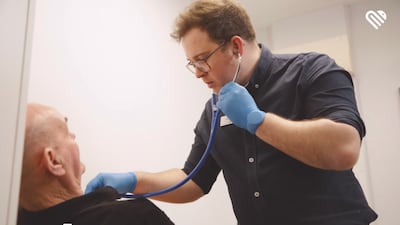Policy & Regulation
Approvals
The US FDA device center’s new annual report found notable successes in 2025 that included continuing to meet user fee goals as well as making progress on patient safety, innovation, and regulatory science.
The US FDA has granted clearance to eMurmur, broadening the use of its AI-powered software platform. The innovative system identifies primary heart sounds to detect abnormal murmurs as they occur.
The FDA has cleared Intuitive Surgical’s da Vinci 5 for some cardiac procedures, opening new opportunities for the firm. The company is also looking to expand its presence in ambulatory surgical centers, execs said during a Jan. 22 earnings call.
The US FDA has made incorporating real-world evidence into medical device decisions a lot easier. The agency now says it will accept RWE without requiring it to contain identifiable individual patient data, making more of it available. Many stakeholders welcomed the change.
Compliance
Stay current on regulatory guidelines from around the world with Medtech Insight's Guidance Tracker. Over 40 documents have been posted on the tracker since its last update.
A warning letter from the US FDA citing concerns of some Abbott continuous glucose monitors will not stop the company from launching a novel diabetes sensor later this year as planned.
Recommendations to mitigate attrition among clinical research and drug manufacturing investigators at the FDA have not been implemented, and a Strategic Workforce Plan aimed at addressing recruiting, retention and training challenges has been shelved, the Government Accountability Office said.
The US FDA has warned that Magellan Diagnostics blood lead tests may provide inaccurately high results, particularly with tubes from ASP Global. Magellan’s tests had previously been recalled over inaccurate low results. The FDA also issued warning letters to both firms.
Recalls
A warning letter from the US FDA citing concerns of some Abbott continuous glucose monitors will not stop the company from launching a novel diabetes sensor later this year as planned.
Cerenovus is recalling multiple products from its Cerepak Uniform, Cerepak Heliform and Cerepak Freeform product lines due to a higher-than-expected failure to detach rate. While customers were sent a safety alert in October, the US FDA announced the recall on Feb. 5.
The US FDA has warned that Magellan Diagnostics blood lead tests may provide inaccurately high results, particularly with tubes from ASP Global. Magellan’s tests had previously been recalled over inaccurate low results. The FDA also issued warning letters to both firms.
The US FDA says Abiomed has reported 22 serious injuries linked to an issue with some of its temporary heart pumps that provide support to patients with acute right heart failure.
Regulation
With EU MDR/IVDR review proposals out, UK MHRA progress on a premarket regulation and, up ahead, a prospective consultation on accepting the CE marking indefinitely, now is a good time to assess EU-UK regulatory positions for the benefit of UK industry, says ABHI director Steve Lee.
The US FDA has published its annual international harmonization assessment for fiscal 2025, which reports on the device center’s progress in aligning medical device regulations with global standards to improve patient access to safe, innovative technologies.
The US FDA’s Quality Management System Regulation has officially replaced the decades-old Quality Management System. The new system links with international standards for regulating medical device systems.
Medtech Insight was invited to moderate a panel discussion with leading experts in neuroscience and AI during INBRAIN’s five-year anniversary in Barcelona, Spain. Panelists discussed the promises, perils in BCI development, neuroethics and outlook.
Legal & IP
The medtech giant violated USA and California antitrust law in its sales practices for devices used to cut and seal blood vessels during surgery, a jury found. Rival firm Applied Medical brought the case.
With capital being recycled, tariffs settling and interest rates softening, 2026 could provide more investment and growth opportunities in pharma and medtech, with AI giving a tailwind, say Taylor Wessing’s Ross McNaughton and Sarah Cole.
The electrostimulation pain treatment firm reportedly shipped excessive supplies to patients for eight years, driving up revenues as well as stock prices.
Seven new healthcare laws will be started in Germany 2026, and seven already underway – including the revamped KHAG hospital and DRGs reform law – will be completed. So goes the ministerial promise early in the new year. Medtechs signal further references to the so-far useful government dialog.
Legislation
AdvaMed president Scott Whitaker said the group is focused on the need for tariff stability in conversations with the Trump administration. The organization remains optimistic about other policy areas. New chairman and ResMed CEO Mick Farrell laid out his five priorities.
As medtech moves toward 2026, experts highlight increased regulatory complexities, particularly around AI, cybersecurity, and device user fees. Urgent regulatory updates are needed to keep pace with rapid technology changes while ensuring patient safety and operational efficiency.
The FDA and medtech industry held multiple meetings last month to continue talks for the next round of medical device user fee amendments. Stakeholder priorities included resource planning, fee structure reforms, IT enhancements, international harmonization, and real-world evidence.
In this second of a three-part series, Medtech Insight spoke with three neuroethicists who raised concerns about privacy, patient safeguards and the need for comprehensive guidelines. These issues are becoming more pressing as BCI companies get ready to commercialize their products.






















